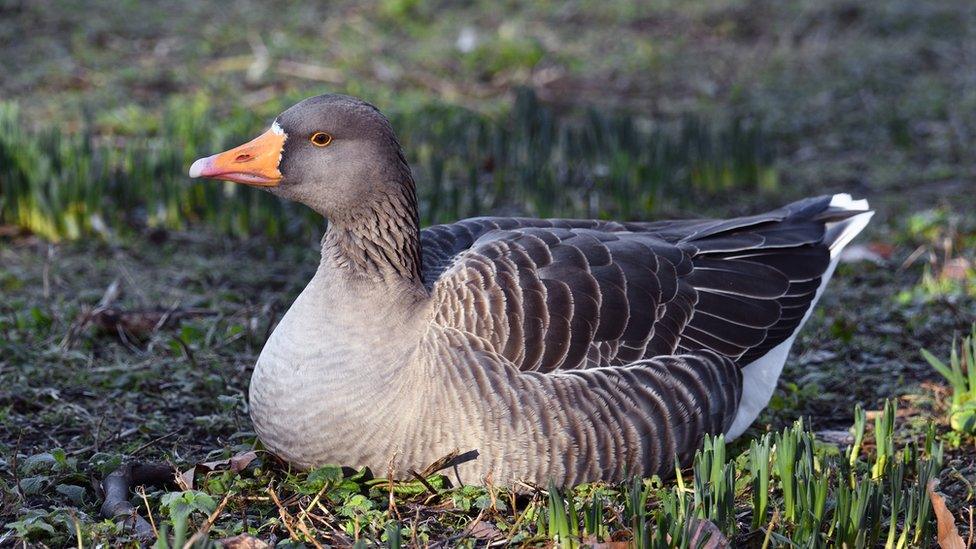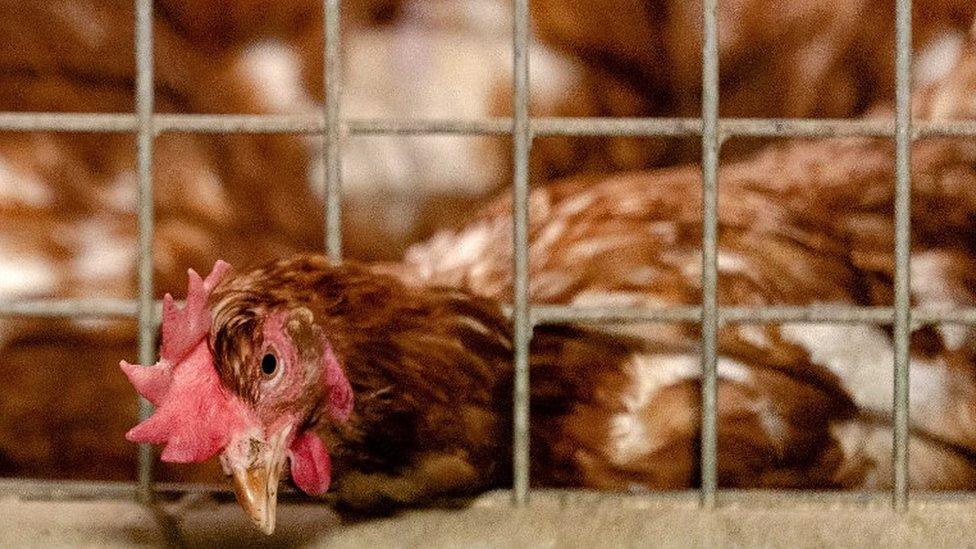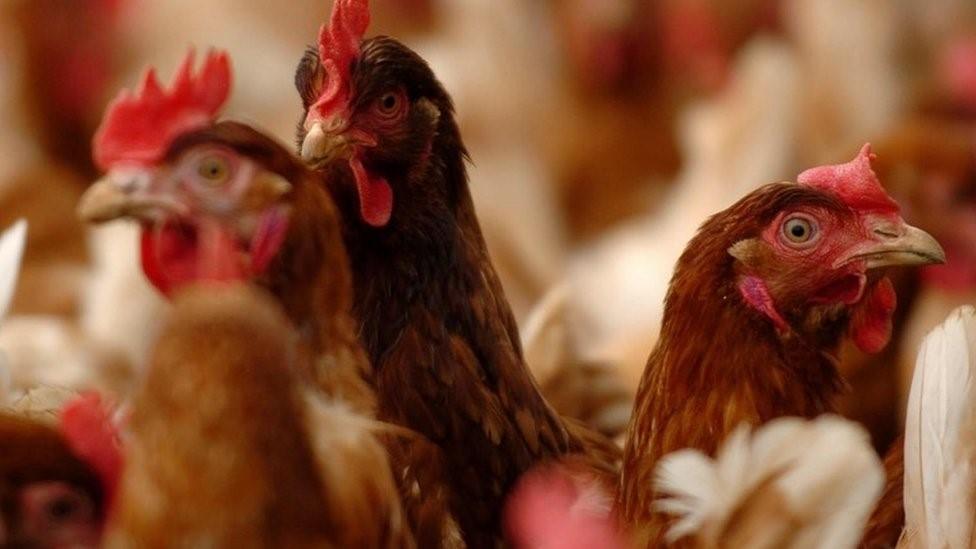Bird flu killed wild birds in three cases in south west England
- Published

Two greylag geese were among the birds that died
Wild birds in three areas of south west England have died from bird flu.
Three wild geese found dead at the end of last month at the Wildfowl and Wetlands Trust (WWT) at Slimbridge, Gloucestershire, tested positive for the H5N8 strain of avian influenza.
Defra said swans that died near Dawlish, Devon and a wild goose in Weymouth, Dorset also tested positive.
Public Health England (PHE) advice is that the risk to public health from the strain of the flu is "very low".
WWT said it was working with the Animal and Plant Health Agency (APHA), PHE, and Gloucestershire County Council to monitor the situation.
The two greylag geese and one Canada goose were sent to APHA for testing, and results show they had the H5N8 strain of avian influenza.
H5N8 is the same strain that infected a poultry farm in Frodsham, Cheshire earlier this month, and which has been found recently in Germany and the Netherlands.
'Reporting findings'
Chief veterinary officer, Christine Middlemiss, said it was "important now more than ever" for bird keepers ensure they "maintain and strengthen good biosecurity... to ensure we prevent further outbreaks".
"Public Health England has confirmed that the risk to public health is very low and the Food Standards Agency advises that bird flu poses a very low food safety risk for UK consumers.
"We ask that people continue to report findings of dead wild birds so that we can investigate the extent of infection."
A WWT spokesman said staff were following advice, research and a pre-prepared response plan, to ensure the wildlife and people at Slimbridge "have the best protection".
The nature reserve has been closed to the public since 5 November in compliance with government coronavirus regulations for the four-week lockdown in England.
The risk level of avian influenza incursion in wild birds in Great Britain has been raised to "high", external following the unrelated confirmed cases in Gloucestershire and Cheshire.
Bird keepers have been urged to "remain alert" for any signs of disease, and report suspected disease immediately.

Follow BBC West on Facebook, external, Twitter, external and Instagram, external. Send your story ideas to: bristol@bbc.co.uk , external
- Published5 November 2020

- Published2 November 2020
